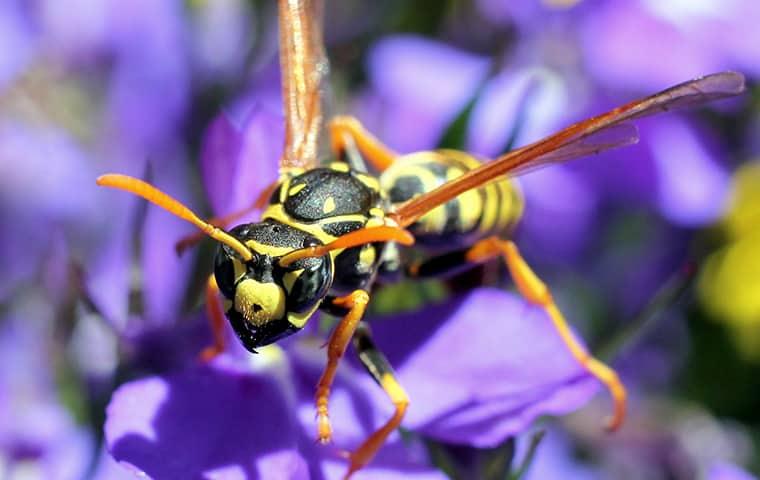Summer is the time to get out and doing other outside activities. Bees, wasps and hornets are active too. But during the summer, pollen supplies can be low so stinging insects will be eyeing your sugary foods and beverages with a little more interest. Knowing a little about these insects will help you know what to do about them.

Bees: During the summer, if honey bees are in nectar dearth, they will eat stored nectar and pollen. And they are attracted to sugar so you may notice them flying around your sweet drinks, fruits, or other sugary treats.
Wasps: Wasps also feed on pollen and nectar and enjoy sweet foods, just like bees. But wasps will sometimes invade honey bees nests to steal honey and bee larvae. They may also feed on insects and spiders.
Hornets: These insects may eat fallen fruit or strip bark from trees to drink the sap. They’re less likely to bother human food than bees and wasps. They feed on live insects.
Unfortunately, bees, wasps, and hornets have a way of crashing outdoor parties, BBQs, and picnics. They are drawn to the same sugary drinks and foods that we are, and even our clothing can inadvertently attract them if you or a guest wears something with a floral print. Instead of canceling outdoor plans, there are steps you can take to be better prepared to help avoid attracting these stinging pests.
How do I reduce the risk of getting stung by one of these stinging insects?
- Do not wear bright colors or floral prints which can attract stinging insects.
- Do not wear loose clothing because you can get them trapped between your clothing and your skin.
- Be sure to wear close-toed shoes when walking around outside.
- Remove any standing water from your property.
- Make sure to repair any dripping or leaking faucets and pipes.
- Place caps on chimneys.
- Repair any damaged screens.
- Flies can attract wasps, so be sure to clear away any garbage and animal feces which might attract flies.
- Take caution when mowing the lawn or trimming vegetation so that you do not accidentally disturb a beehive or wasps’ nest.
- Fill in holes in your yard. Yellow jackets and other stinging insects often create ground nests in holes in your yard.
Because of the risk associated with getting stung, it is best to have a professional remove any hives or nests near your home.
One of the problems associated with bees, wasps, and hornets is the risk of getting stung. More than 5% of people who get stung are at risk of having an allergic reaction. For some, the reaction is serious enough to have to carry an EpiPen or be forced to get medical treatment.
If you are having a problem with bees, wasps, hornets or other pests, contact Kanga Pest Control. We’re open six days a week (closed on Sunday) and are happy to take care of whatever pests are bugging you. Our affordable prices and quarterly services help take the sting out of pest control.
